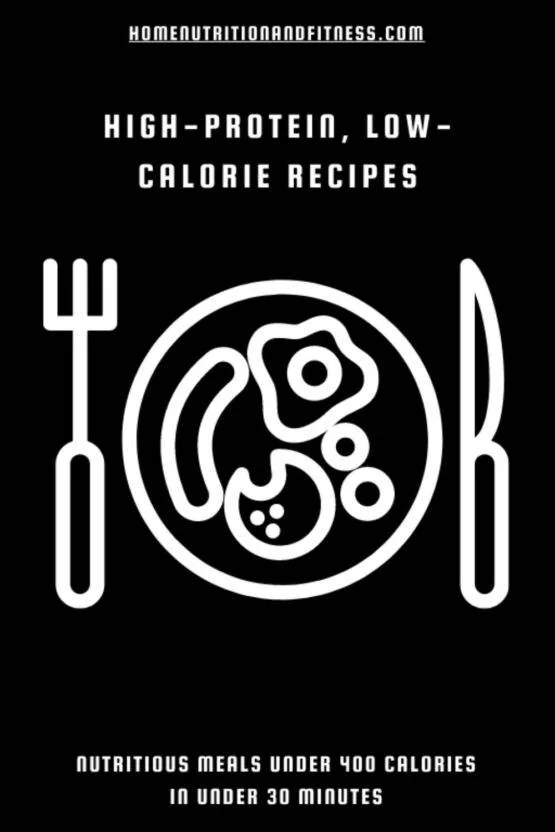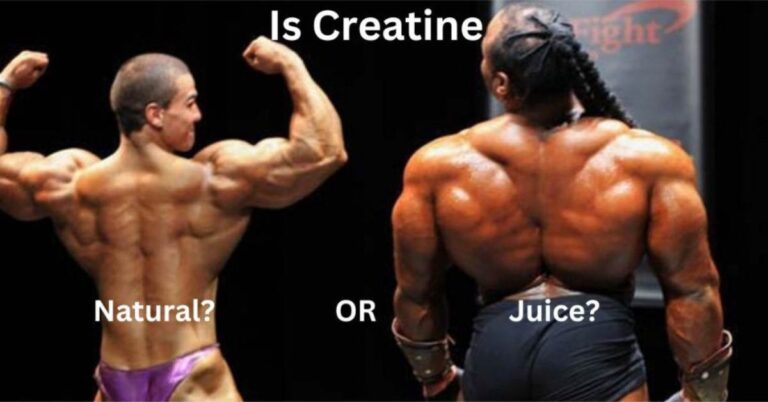Protein Powders and Pre Workout Powders are two completely different types of supplements that serve different purposes. Both are incredibly popular in the fitness world, but it’s surprisingly common for people, especially beginners, to think they’re one and the same.
Both protein powders and pre-workout powders have distinct uses and benefits when it comes to exercise performance, muscle growth, and overall health goals. Keep reading to understand the difference between protein powder and pre-workout and how to determine if one or both should have a place in your own fitness routine!
Protein powder and pre-workout powder serve different purposes. Beginners start with protein powder for muscle growth and later use pre-workout powder as intensity increases. Pre-workout powder boosts energy and focus during high-intensity workouts. Protein powder aids in muscle repair, growth, and recovery, making it ideal for building mass, reducing body fat, and meeting protein needs. Both are useful but can’t replace a balanced diet, proper training, and rest.
Affiliate Disclosure: Please note that some of the links on this page may be affiliate links. This means that if you click on these links and make a purchase, we may earn a small commission, at no additional cost to you. We only recommend products and services that we believe in and use ourselves. Your support through these links helps us keep the content coming. Thank you for your support!
Do I Need Pre-Workout and Protein Powder?
Whether you need both pre-workout and protein powder really depends on your specific fitness goals and preferences. Here’s a quick rundown of the core benefits of each:
Pre-workout gives you an energy boost, heightened focus and endurance for tough training sessions. The ingredients ramp you up for peak workout performance.
Protein powder helps build and repair muscle tissue. It also helps manage hunger by providing a protein-rich nutritional boost.
Many athletes and active individuals use both supplements to maximise their results from exercise and maintain their physiques. The pre-workout gives them the intense training capability while the protein powder supports optimal muscle growth and recovery.
However, there are certain scenarios where one supplement may be more important or beneficial than the other.
When Pre-Workout May Be More Important
If your main fitness priority is high-intensity training like HIIT, CrossFit or heavy powerlifting, you’re looking to seriously boost your strength and power output, or you’re training for athletic performance like sprinting or boxing, then a pre-workout can give you the competitive edge!
The stimulant ingredients like caffeine provide increased energy and focus that gets you fired up to push harder than ever and break through plateaus. The ability to train at maximum intensity and output is crucial for performances related goals. Pre-workout allows you to tap into strength and speed you may not reach naturally.
When Protein May Be More Important
If your main fitness priority is bulking up and building significant muscle mass, cutting body fat while preserving hard-earned lean muscle, or getting enough protein as a vegetarian/vegan, then protein powder can make reaching your goals much easier!
It supplies the essential amino acids and other nutrients your muscles need to recover and grow bigger and stronger after intense training. Without sufficient protein intake, all the hard workouts in the world won’t build the physique you want. Timely protein also minimises muscle breakdown when cutting weight. For those avoiding meat like vegetarians or vegans, soy and pea protein powders provide high-quality plant-based protein.
Key Differences Between Protein Powder and Pre-Workout
Now let’s look more closely at what sets a protein supplement and a pre-workout supplement apart from one another:
Whey Protein vs Casein Protein
There are two main types of protein commonly used in supplements – whey and casein. Here’s how they compare:
Whey absorbs rapidly, making it ideal to consume post-workout to start repairing muscle quickly. The swift amino acid delivery maximizes growth.
Casein absorbs more slowly over several hours, so it’s useful between meals or before bed to provide a steady supply of muscle-building amino acids. This prevents the unwanted breakdown of muscle (catabolism).
What Do Pre-workout and Protein Powder Have in Common?
While protein and pre-workouts have different effects on your body, there are some similarities in how you take them:
- Both come in powder form that you mix with water, milk or other liquids for convenient consumption.
- Both contain various synergistic ingredients blended together in precise doses to support your fitness goals.
- Both require some trial and error to find the optimal brand and particular product that works best for you personally. Individual responses vary.
The Purpose of Protein Powders
Protein powders are specifically designed to:
- Provide supplemental, high-quality protein from fast-absorbing sources like whey or casein to promote muscle repair and growth.
- Help hard-training individuals meet increased daily protein needs resulting from intense resistance or endurance exercise that breaks down muscle tissue.
- Speed up the muscle recovery process so you can train again sooner and continue making progress without overtraining or burnout.
The Smartest Way To Use Protein To Build Muscle
Types of Protein Powder
There are a few popular types of protein powder:
- Whey – Fast-absorbing protein from milk, ideal for post-workout
- Casein – Slow-absorbing protein from milk, great before bed
- Egg – Leucine-rich protein, high in BCAAs, lactose-free
- Soy – Plant-based complete protein, but slower muscle protein synthesis
- Pea – Vegan-friendly protein from yellow split peas, low allergy risk
When selecting a protein powder, you’ll often see the terms concentrate, isolate, and blended. These refer to how refined and processed the protein is:
- Protein concentrates contain around 70-80% protein by weight, with some lactose and fat still present. They provide good value and decent protein content.
- Protein isolates go through more filtration to increase the protein content to 90-95%. This leaves virtually no lactose or fat but comes at a higher price.
- Blended powders combine concentrates and isolates to achieve a balance of protein content, quality, and affordability. They aim to provide the best of both worlds.
The purity level you choose comes down to your budget, dietary needs, and how well you tolerate the ingredients.
The Purpose of a Pre-Workout
Pre-workouts aim to:
- Provide rapid energy, intense mental focus and motivation to push through the toughest training sessions and longest endurance activities.
- Allow you to exercise harder and longer than you may be capable of normally. They expand limits.
- Boost strength capacity, muscle endurance, power output, and anaerobic performance for more volume and gains.
Some of the most beneficial ingredients often found in pre-workouts include:
- Caffeine – The staple stimulant that increases energy, focus, and concentration in a safe way.
- BCAAs – Essential branch chain amino acids like leucine reduce fatigue and preserve muscle.
- Beta-Alanine – This compound reduces lactic acid build-up for enhanced muscular endurance and strength.
PRE-WORKOUT EXPLAINED! – What Is It & Should You Be Using Pre-Workout Supplements?
You’ll often see non-stimulant or stimulant-free options for those sensitive to caffeine. Pre-mixed varieties are convenient, or you can buy standalone ingredients to customise dosing.
For more information on Pre Workout alternatives see What Is A Good Alternative To Pre Workout?
What Is the Best Time to Take Pre-workouts and Protein?
- Pre-workout – Take 30-60 minutes before your training session to feel the effects during your workout when you need them most.
- Whey protein shakes – Take immediately after a tough workout to kickstart the recovery process and maximise muscle growth or any time to boost your overall protein intake.
- Casein protein – Take any time between meals or before bed to provide a steady supply of amino acids and prevent catabolism.
This strategic timing allows you to get the most out of each supplement.
Which Is Better for Beginners – Protein or Pre-Workout?
For those just getting started with fitness and training, protein powder is often the smarter supplement choice over pre-workout:
- The stimulant effect of pre-workouts is likely unnecessary during the beginning stages when the body is rapidly adapting.
- Whey protein immediately after workouts will help ensure those early training sessions translate into solid muscle gains right away.
- Creatine is another useful beginner supplement for energy and strength development without stimulants.
- Once your body adapts to regular training, pre-workout can provide an extra push and performance boost.
For more information see this extract from my article on muscle gain and fat loss – Why Beginners Experience Rapid Body Transformation.
Conclusion
Pre-workout powders are designed to enhance your energy, focus, and endurance during workouts, making them particularly beneficial for high-intensity training and athletic performance.
Protein powders are important for muscle repair, growth, and recovery, making them the supplement of choice for individuals aiming to build muscle mass, cut body fat, or just simply meet their protein needs, especially for vegetarians or vegans.
Both protein and pre-workout supplements can be valuable tools in your daily fitness regime, but they are not a substitute for a balanced diet, proper training, and adequate rest.
Beginners are often advised to start with protein powders to support muscle growth from their initial training sessions, and then consider pre-workout supplements as their training intensity increases.
Always consult with your doctor before starting any new supplements.
Frequently Asked Questions
Q. Is Protein Powder Better Pre or Post-Workout?
A. Protein powder is generally recommended post-workout rather than pre-workout. Consuming a fast-absorbing protein like whey immediately after training helps kickstart the muscle recovery process to maximize growth.
Q. Do You Need Pre-workout and Protein Powder?
A. It depends on your goals and preferences. Many use both to enhance training and support recovery. But pre-workout gives energy for your workout, while protein aids muscle growth – so choose based on your needs.
Q. Can I Take Pre-workout and Protein Powder Simultaneously?
A. Yes, you can take a pre-workout and protein powder shake together. The pre-workout will provide energy and focus for your session, while the protein starts muscle repair – just follow dosage guidelines and determine your body’s tolerance.








Hi there,
Really useful article, so much information and guidance.
I can honestly say that I did not know there was a difference between these and thought they were one and the same product. This article really helps to define the differences between them and explains in great detail the benefits of each.
Thank you!
Thanks for the feedback. I know there are a lot of supplements available and it can be difficult to understand the differences between some of them and whether they are worthwhile. Hopefully this article will help you and others in making the decision on which direction you’d like to go with supplementing your workouts! Best wishes, Chris